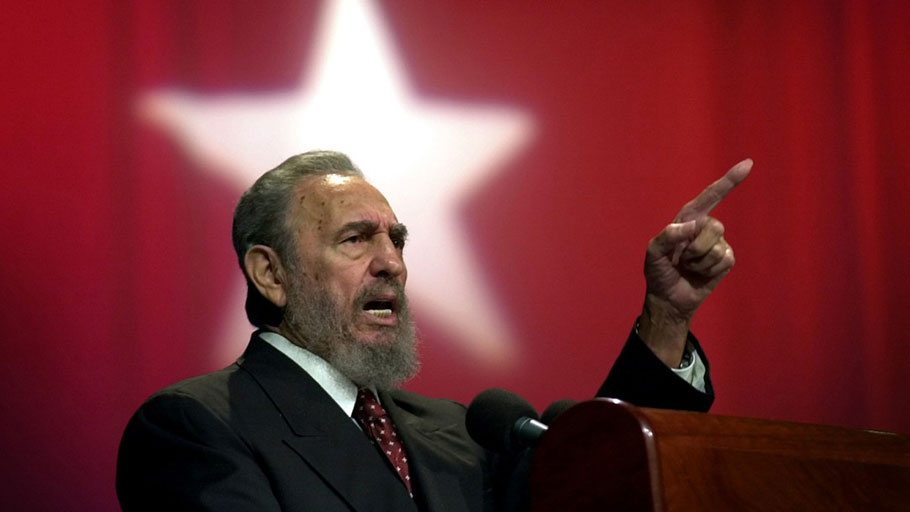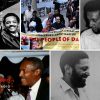Fidel Castro, former president and leader of the Cuban revolution, died in November at age 90. Affectionately known as El Comandante in socialist Cuba, Fidel Castro’s legacy will live in the hearts of not only the Cuban people but millions and millions around the world who thought of him as the man who stood up against U.S. imperialism and won. Photo: Reuters
By Sasha Gillies-Lekakis —
The nation that revolutionary Fidel Castro forged in 1959 is finally coming out of the shadow of Cold War propaganda. From the outset Fidel and his new nation were victims of capitalist paranoia, and we in Australia are still exposed to Cuban issues through this lens. In light of this we must question the validity of what we in the west ‘know’ about Fidel Castro and his clearly anti-capitalist revolution, in order to understand the true nature of Castro’s Cuba. Labelled a ruthless dictator by the United States, to many others he is a revolutionary inspiration and hero. Our world is now more sophisticated than when Fidel Castro led the Cuban people to victory over Batista but the age old battles against oppression at the heart of the revolution still continue today, making Castro’s legacy all the more important. We can now answer the obvious question that presents itself: has history absolved Fidel Castro, as he once said it would? Clearly, it has.
Before Fidel Castro’s revolution, Cuba was little more than a U.S. holiday resort and tax-free haven, dominated by gambling and prostitution, run by dictator Fulgencio Batista. U.S. financial interests included 90 percent of Cuban mines, 80 percent of its public utilities, 50 percent of its railways, 40 percent of its sugar production and 25 percent of its bank deposits. Whilst a substantial upper middle class enjoyed a life of luxury, the majority of Cubans were plagued by poverty and corruption. Most people had no electricity or water. There was only 1 doctor per 2,000 people in rural areas and more than one-third of the rural population had intestinal parasites. Sixty-one percent of rural children were not attending school.
Early on, Castro made a clean break with capitalism, by nationalizing U.S.-controlled industries, instituting land reform, dismantling Mafia-owned casinos and brothels, and ending longstanding systemic corruption. Establishing essential social services remain one of Castro’s most important achievements. Cuba’s Constitution mandates “the right to health protection and care” for everyone, by “providing free medical and hospital care (Article 50)”. It further guarantees “free universal education, at all levels, to children, youths and adults (Article 51)” and mandates government provided social services, including “special help for Cuba’s elderly, disabled, others unable to work and single mothers (Article 49)”. Castro honored these goals by establishing a social system that could deliver these outcomes.
According to the United Nations Human Development Index (2014), Cuba ranks 44 out of 187 highest out of all the developing nations and higher than many in Europe. Cuba maintains the developing world’s most extensive infant immunization coverage, and its infant mortality rate at 4.8 deaths per 1,000 live births equals Britain’s and betters the United States. With free universal healthcare, a life expectancy equal to developed nations, and with more doctors per person than any other country in the world, Cuba’s achievements are exceptional amongst the world’s nations.
These, coupled with free universal school and tertiary education, and state provision of social services, prompted U.N. Secretary General Kofi Annan to comment that “the human development index of the United Nations makes clear year after year, Cuba should be the envy of many other nations, ostensibly far richer. [Cuba] demonstrates how much nations can do with the resources they have if they focus on the right priorities – health, education, and literacy. ”
When the Soviet Union collapsed in 1989, Cuba immediately lost three quarters of its trading partners. With the U.S. blockade still in place Cuba entered a very difficult time that they call their ‘special period’. It would have been easier at this time to compromise the revolution and take the easy way but, instead of giving in Fidel forged new trade arrangements and radically restructured agriculture on the Island – Cuba now yields some of the highest levels of agricultural output in Central America, and above average yields across the world. The Cuban Ministry of Agriculture greatly reduced its use of diesel fuel by developing an innovative approach to urban agriculture – 35,000 acres of urban gardens producing 3.4 million tons of food. In Havana, the largest of all the Caribbean cities, 90 percent of the city’s fresh produce comes from local urban farms and gardens, all organic.
The only country listed by the World Wildlife Fund as environmentally sustainable, Cuba’s ‘People not Profit’ Agricultural model provides hope for the millions of starving people in the developing world. In the wake of pressure from private, multi-national corporations pushing genetically modified seed, Fidel Castro’s socially based agro-ecological approach provides a much needed alternative model. But, it is not just at home that Cuba excels – Fidel Castro has ensured that Cuba’s social advances provide humanitarian benefit for others struggling throughout the world.
Fidel Castro once said that “North Americans don’t understand… that our country is not just Cuba; our country is also humanity.” With a plethora of humanitarian programs and successes to back up this claim, Castro’s policy of selfless internationalism has had profound impact throughout the less-developed world, and it is here that Fidel’s vision set him apart from the rest. From supporting the opposition to apartheid regimes in South Africa and Angola, to improving education in Central America, Fidel’s aid has helped struggling countries throughout the world. Something that has largely gone unreported in the west, is the remarkable role Cuban doctors and medical personnel have played in dealing with disasters and crises throughout the developing world.
A prime example is Cuba’s response to the spread of Ebola in West Africa. According to the World Health Organization, Cuba has sent hundreds of medical personnel to West Africa to work on the frontline against the disease, more than any other single nation. Another example is Cuba’s response to the Earthquake disasters in Haiti, dispatching hundreds of doctors to the stricken country. With a population of just over 11 million people and a GDP of just US$6051 per capita, Cuba’s gesture of solidarity is unique in the world, putting to shame many far richer countries including Australia.
More remarkable is the fact that Cuba also currently has some 50,000 medical personnel serving on such medical missions in 66 countries in the developing world, as well as empowering others by providing free university education for thousands from other developing nations to train as doctors and teachers. This is Fidel Castro’s legacy – selfless internationalism, essential to the future and beneficial to those truly in need of aid.
Fidel Castro is one of the most exceptional leaders of modern times. He inspired many people to care about others who have less, to place humanity above greed and not to fear fighting those who are more powerful – and he did this for more than fifty years, not only leading the Cuban revolution but also having the strength of character to maintain its purpose. His actions, always true to his words, earned Fidel Castro the respect and admiration of millions throughout the world. With excellent healthcare and education services, sustainable resource use and selfless international humanitarianism, Cuba is now a viable alternate model to western capitalism.
History has truly absolved Fidel Castro.
This essay reached the Australian finals of a history competition for all school students called the ‘Australian National History Challenge’.















